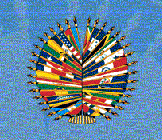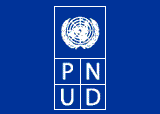Washington Post
Venezuela Opposition Calls Strike
By James Anderson
Associated Press Writer
Friday, November 22, 2002; 4:44 AM
CARACAS, Venezuela –– Venezuela's opposition ignored a last-minute
plea by the Organization of American States and called a general
strike intended to force a vote on President Hugo Chavez's rule.
The strike call on Thursday defied OAS warnings that more labor
stoppages would only destabilize this leading oil supplier to the
United States.
Labor leader Carlos Ortega said the one-day strike on Dec. 2 could be
extended – or begin earlier – if Chavez continues to fight a
referendum.
Ortega dismissed a warning by OAS Secretary General Cesar Gaviria that
a strike could sabotage talks to end Venezuela's political crisis.
Gaviria said that Chavez's recent takeover of the Caracas police force
also threatened the talks, which are backed by the United Nations and
the Carter Center based in Atlanta, Ga.
Ortega said Chavez was using Gaviria to buy time and put off an
election. Chavez has tried to stall a vote by challenging the validity
of the National Elections Council and a new election law in court.
The National Electoral Council has until Dec. 4 to approve or reject
an opposition petition for a nonbinding referendum that would ask
Venezuelans whether Chavez should resign.
Chavez says that under Venezuela's constitution a binding referendum
may be held halfway into a six-year presidential term, which in this
case would be August 2003.
Government negotiator Maria Cristina Iglesias called the strike
leaders "terrorists" who were trying to incite a military rebellion.
Iglesias, Venezuela's labor minister, said the government would
continue to participate in OAS talks.
Strike leaders repudiated Chavez's seizure of the 9,000-member Caracas
police department last Saturday. Chavez said he intervened to end
labor strife in the department. Critics called it a blatant power grab
by the leftist government.
Ortega's 1 million-member Venezuelan Workers Confederation;
Fedecamaras, Venezuela's biggest business chamber; and the Democratic
Coordinator political coalition are sponsoring the strike, which comes
a day after a planned rally by Chavez supporters in Caracas, the
capital.
It's the fourth general strike in less than a year against Chavez,
whom opponents accuse of mismanaging the economy, undermining
democratic institutions and inciting violence with divisive class
rhetoric. Chavez says he is trying to distribute Venezuela's oil
wealth to the poor.
Dissident army Gen. Enrique Medina Gomez said this week that a
prolonged strike – if backed by Venezuela's oil monopoly – is the
opposition's last chance to remove Chavez. "There's no other way," he
said.
Ortega struggled for weeks to organize the strike. Retailers are
counting on holiday sales after suffering a year of recession.
"Many of our members hope to recover some of the losses they've
sustained these last few months," Miguel Perez Abad, president of the
Fedeindustria chamber of small businesses, told Union Radio.
A general strike and the slayings of 19 people in an opposition march
produced a brief overthrow of Chavez on April 12. Loyalist troops
restored him April 14 after an interim government abolished the
constitution.
© 2002 The Associated Press
http://www.washingtonpost.com/wp-dyn/articles/A24637-2002Nov22.html


